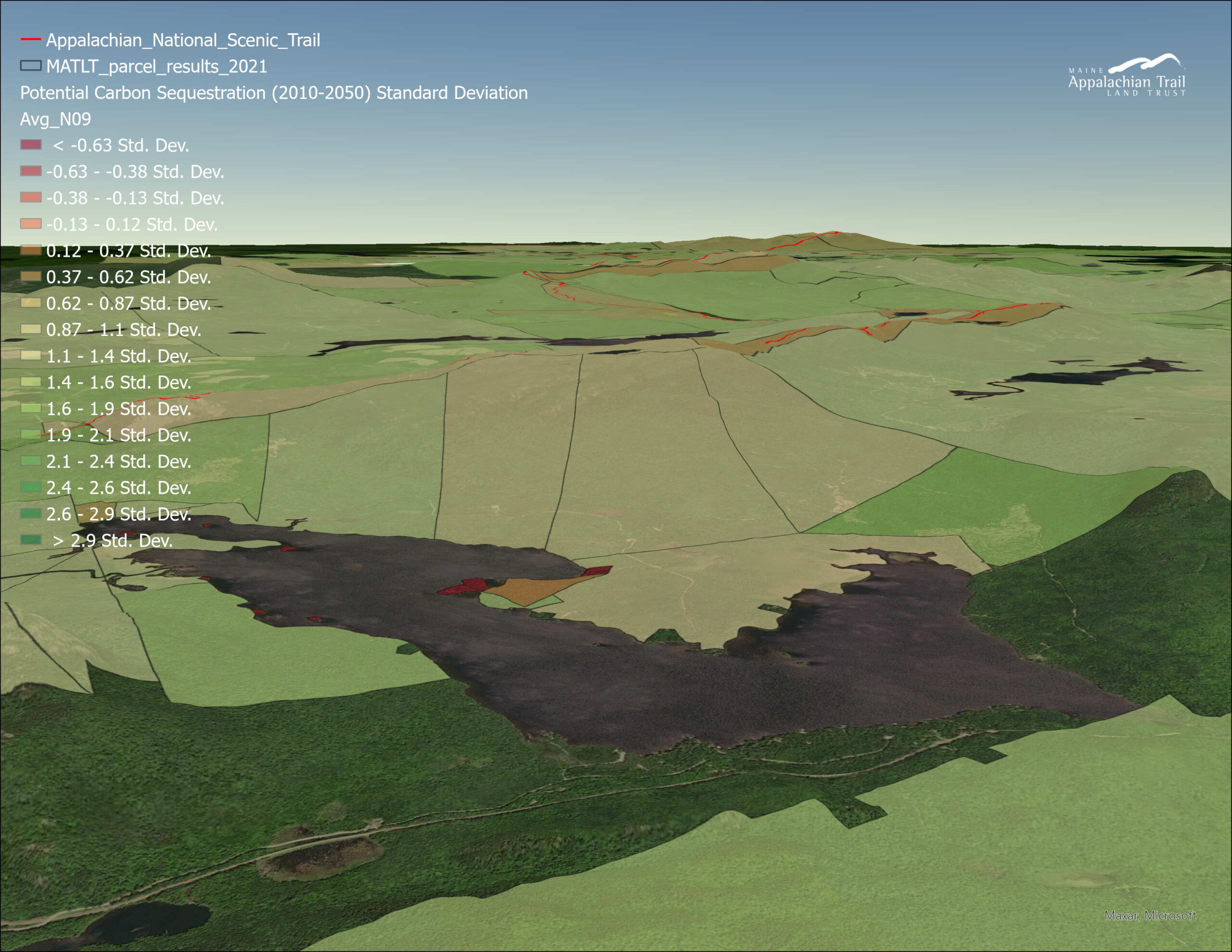
The Maine Appalachian Trail Land Trust is pleased to announce that the organization is the recipient of a grant from the Land Trust Alliance and the Open Space Institute, the funds from which will be used to incorporate climate science into strategic land protection and stewardship efforts, harnessing the land’s natural ability to capture and store carbon.
Specifically, these funds will be used for the Maine Appalachian Trail Geospatial Information for Conservation (MATGIC) project, which covers 1,708,013 acres of land within two miles of the Appalachian National Scenic Trail in Maine.
“The MATGIC project is the best tool we have for analyzing the land along the A.T. in Maine for land conservation. Using this kind of data as the Maine Appalachian Trail Land Trust has put it all together is a way to take advantage of opportunities and also counter threats to Maine’s A.T landscape,” said Peter S. McKinley, land trust board Vice President.
The Land Trust’s work supports the Maine Climate Council’s mission, which includes protecting the state’s environment and working lands and waters as one of eight primary strategies for achieving carbon neutrality by 2045, and decreasing greenhouse gas emissions by 80% by 2050. If these goals are to be reached, the lands along the A.T. in Maine will play a significant role for the people of the state of Maine and beyond.
In total, the Land Trust Alliance and the Open Space Institute are awarding nearly $400,000 in grants to help communities better plan for climate change and its impacts. This work will enable people, plants, and animals to better adapt to a changing climate. The grants, which have been awarded to 30 nonprofit organizations nationwide, also include nearly $50,000 of direct technical assistance for climate-focused planning and communications. The program is generously funded by Doris Duke Charitable Foundation, J.M. Kaplan Fund, Jane’s Trust Foundation, the Volgenau Foundation, the William Penn Foundation, an anonymous foundation, and several individual donors.
